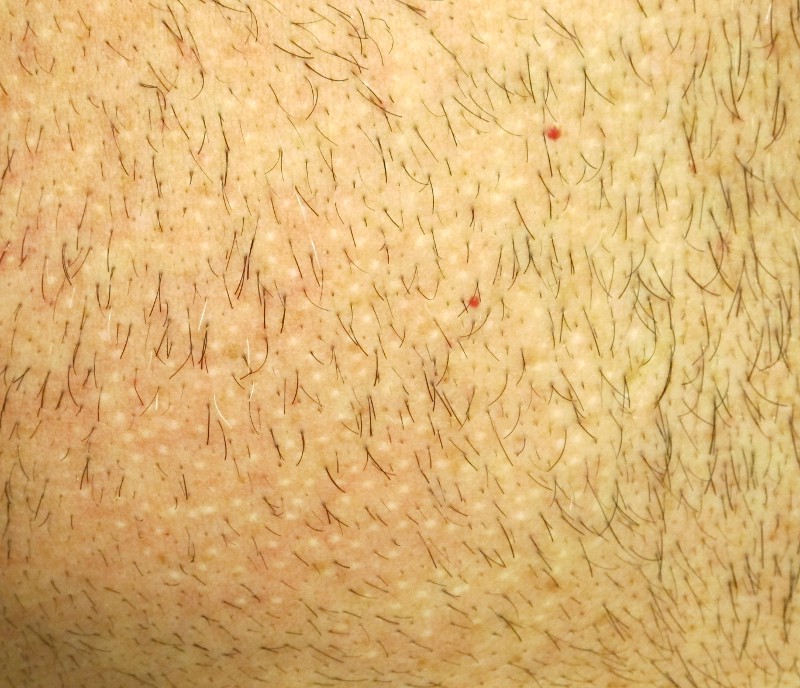Q: Dr. Bernstein, can you please comment on leg and body hair transplants? — J.R., Ridgewood, NJ
A: I’ve tried the technique in the past but have been dissatisfied with the results. Scalp hair, unlike the rest of the body, has multiple hairs rising out of each follicle. With leg and body hair, you have only one hair per follicle, not follicular units of multiple hairs. Leg hair is also very fine. It might thicken up a little bit after it is transplanted, but not enough to be clinically useful. In men you want full thickness hair, so fine hair can make it look like it is miniaturizing, as it does when you’re losing it.
Body hair has been successful in softening hairlines, but most people have enough scalp hair to due this, since it often requires very little if properly placed. Another issue is that because leg hair emerges from the skin on a very acute angle, more wounding of the skin occurs as each hair is individually extracted and this leaves marks.
Body hair, from the chest or back, does hold better potential for success than leg hair, particularly if it is plentiful, but it still is extracted one hair at a time and can leave significant scarring when done in large numbers.
Posted by






